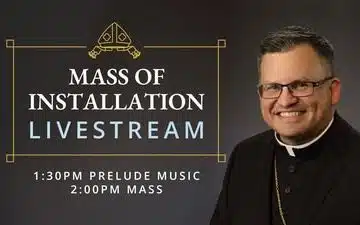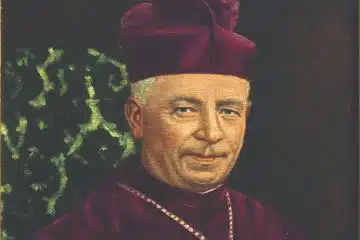St. Irenaeus of Lyon: the legacy of the early Church father and doctor of unity
CNA Staff, Jun 28, 2024 / 04:00 am
On June 28, the Catholic Church celebrates St. Irenaeus of Lyon, who as a boy sat at the feet of Polycarp, eagerly listening to the sermons of the early Christian bishop and disciple of the apostle John.
The boy Irenaeus grew up to write vastly influential documents that witnessed to the early Church’s understanding of topics ranging from the Old Testament to the Eucharist.
Though he has long been considered an early Church father, Pope Francis named him the 27th doctor of the Church in 2022, more than 1,800 years after his death, naming him “Doctor Unitatis,” or Doctor of Unity.
While his work was foundational to the Church, Irenaeus did not consider himself a scholar, and his most famous work, “Against Heresies,” written in about 185 A.D., stemmed from a pastoral desire to defend the Church from the rampant heresy of Gnosticism.
“You will not expect from me … rhetorical skill, which I have never learned, nor power in writing, which I have not acquired, nor beauties of language and style, which I am not acquainted with,” the Doctor of Unity wrote, as quoted in Cyril Richardson’s anthology “Early Christian Fathers.“
Though he was buried in a crypt after his death in about 202 A.D., the tomb was destroyed in 1562 along with his relics. Though his physical remains are gone, along with any original copies of his writing, his image is detailed in icons made of gold leaf hammered onto wood boards, his translated writings are perused and annotated by scholars, and his legacy continues to guide the Church today.
A spiritual bridge
Irenaeus was born a Greek in the Eastern half of the Roman Empire, in the ancient Greek coastal city of Smyrna, in what is now modern-day Turkey, between 115 and 125 A.D. or 130 and 140 A.D. He became bishop of Lyon but traveled to Rome.
“St. Irenaeus of Lyon, who came from the East, exercised his episcopal ministry in the West: He was a spiritual and theological bridge between Eastern and Western Christians,” Pope Francis wrote in the 2022 decree naming Irenaeus a Church doctor.
“His name, Irenaeus, expresses that peace which comes from the Lord and which reconciles, restoring unity,” the pope noted.
While he ardently condemned heresies, Irenaeus wrote a letter in about 190 A.D. to Pope Victor, respectfully protesting his intention to excommunicate a group of churches in Asia Minor for observing the paschal feast on the Jewish date.
Irenaeus wrote only in Greek, but the oldest copies of his writings are mostly Latin translations, or snippets of his writings as cited by other early Church authors such as Eusebius.
Though the original copies of his writings are lost to history, the two complete writings still in existence are a scrupulously accurate Latin translation of “Detection and Overthrow of the False Knowledge,” commonly called “Against Heresies,” and a Latin translation of “Proof of the Apostolic Preaching,” where Irenaeus expounded on Old Testament prophecies to show the truth of the Gospels.
Much of Irenaeus’ work was lost for a time until he was brought back into the view of the Church by Erasmus in 1526, just after the start of the Protestant Reformation.
He likely died near the year 202 A.D., and though he is sometimes known as a martyr, there is little evidence to suggest that he was martyred. The Roman Catholic Church celebrates his feast day on June 28, while Eastern Orthodox churches celebrate it on Aug. 23.
Legacy and writings
In his best-known work “Against Heresies,” Irenaeus countered Gnosticism, an esoteric sect that believed that people are saved by acquiring secret knowledge, that creation was inherently bad, and that Christ was not truly God but a created being.
But in “Against Heresies,” Irenaeus also gave a coherent summary of the Christian faith that provides modern Christians with an understanding of what the early Church believed at about 160 years after the death of Christ from someone who knew a disciple of the apostle John.
Irenaeus was also the first on record to cite all the books in the Church’s current New Testament with the exception of three small books: Jude, 3 John, and Philomen.
Ireneaus also developed Paul’s conception of pedagogy, the idea that through the Old Testament, God prepared humanity for the coming of Christ, gradually teaching the Israelites in view of the fullness of his plan, which would be revealed later.
In “Against Heresies,” he wrote on the Eucharist as well, saying: “For since we are his members, and are nourished by [his] creation … he declares that the cup, [taken] from the creation, is his own blood, by which he strengthens our blood, and he has firmly assured us that the bread, [taken] from the creation, is his own body, by which our bodies grow.”













